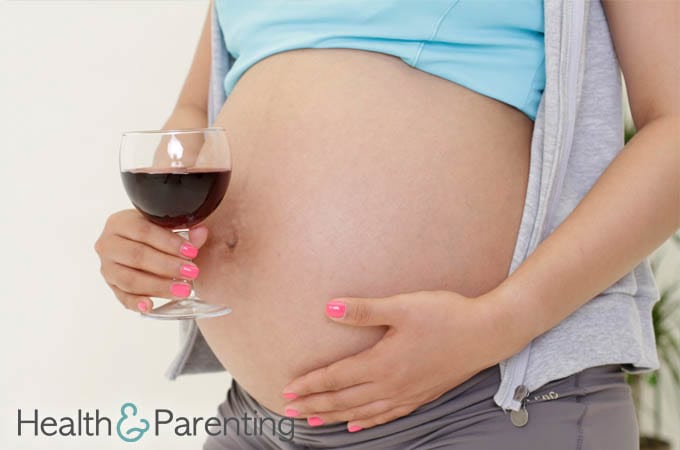How much is too much?
When it comes to drinking alcohol during pregnancy, not enough is known about the potentially harmful effects alcohol can have on the developing baby. For this reason, experts advise pregnant women to avoid alcohol entirely for the duration of the pregnancy. Women trying to conceive are also advised to steer clear of the hard stuff.
Will alcohol harm my baby?
Alcohol enters your blood and can cross the placenta to your developing baby. Your baby’s liver does not mature until late in the pregnancy. Your baby can’t process alcohol as well as you, and may experience higher levels of blood alcohol than you. Too much exposure to alcohol can harm your baby’s development, so experts advise women to avoid alcohol during pregnancy.
During the first three months of pregnancy, even low levels of alcohol consumption can increase the risk of miscarriage. During the first trimester, the foetus is believed to be particularly vulnerable to the effects of alcohol. Just one drink a day can put your baby at risk of low birth weight and increase his risk of developing learning and attention problems, speech and language difficulties and hyperactivity.
Foetal alcohol syndrome
Foetal alcohol syndrome is a serious condition caused by excessive alcohol consumption during pregnancy. Symptoms include:
- facial abnormalities
- restricted growth
- learning disorders
- behavioural disorders
Because experts don’t know the alcohol consumption level that can begin to cause these abnormalities, they suggest abstaining from all alcohol during pregnancy.
Giving up alcohol
For some women, giving up alcohol for the duration of the pregnancy will be easy. For others, however, it can prove more of a challenge. If you are struggling to give up drinking alcohol during pregnancy, you may find the following advice useful:
- talk about your feelings – talking about how you feel can help you to deal effectively with your emotions. Rather than feeling ashamed or bottling up your struggles, open up to your friends and family. They may be able to offer advice or assistance to help you avoid alcohol.
- find a drink you like – you don’t need to spend each evening begrudgingly sipping tap water, find a non-alcoholic drink you enjoy. There are plenty of fruit juices, flavoured waters and soft drinks for you to choose from.
- avoid tempting situations – if you are finding it very difficult to avoid alcohol, you may find avoiding certain social situations helps you to stay in control. This doesn’t mean you have to become a hermit and miss out on all the fun, but perhaps you should call it a night before your friends break out the tequila bottle.
- ask for help – it’s ok to find things difficult, not everything in life is easy. If you’re battling with giving up alcohol, speak to your healthcare provider. They are best placed to offer you practical advice and support to help you avoid alcohol.
Written by Fiona (@Fiona_Peacock), mother, writer and lover of all things baby related.
This information is not intended to replace the advice of a trained medical doctor. Health & Parenting Ltd disclaims any liability for the decisions you make based on this information, which is provided to you on a general information basis only and not as a substitute for personalized medical advice. All contents copyright © Health & Parenting Ltd 2017. All rights reserved.











